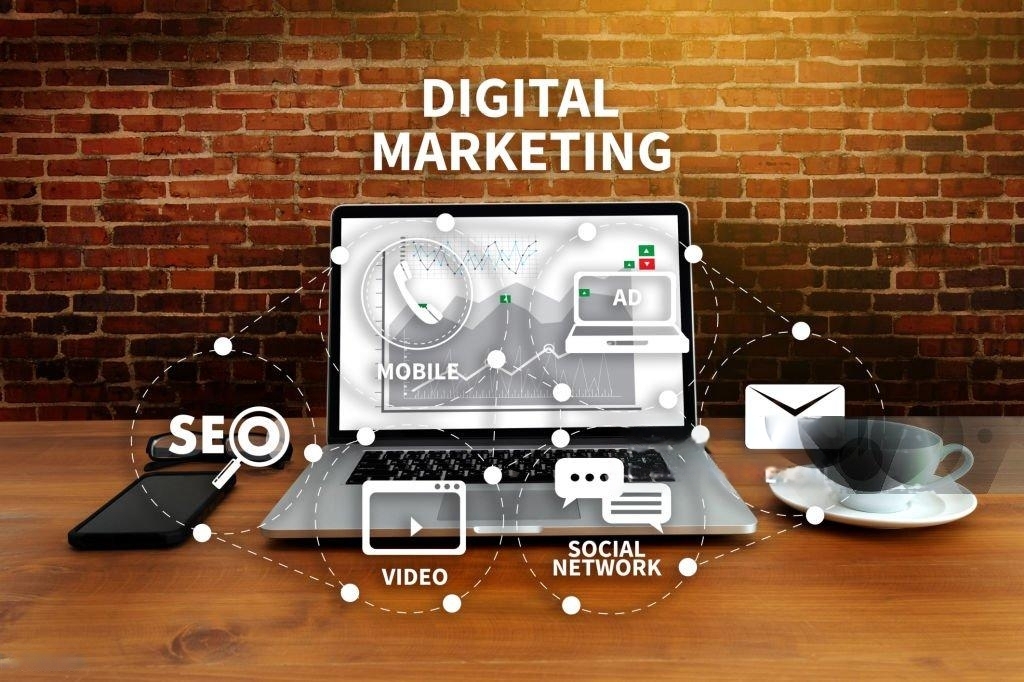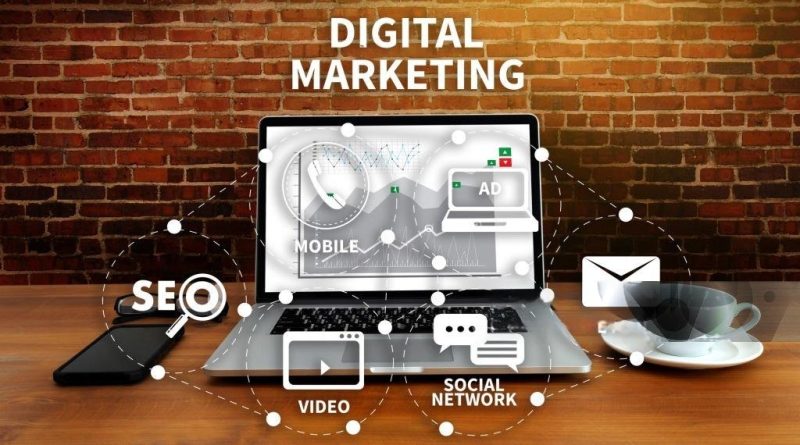What is Digital Marketing? A Beginner’s Essential Guide!
What is Digital Marketing?
Let’s begin with the fundamentals: what exactly is digital marketing, and what does it encompass?
In simple terms, digital marketing—often referred to as online marketing—includes all marketing activities conducted over the Internet. It is a broad term that covers various digital marketing efforts while also functioning as a distinct discipline. We will delve deeper into this in the following section.
In contrast to traditional marketing, which relies on offline methods such as print media, direct mail, and phone calls, digital marketing utilizes online channels to carry out marketing activities. This approach enables digital marketers to effectively target and convert potential customers.
Some common digital marketing channels include:
- – Social media
- – Paid advertisements
- – Search engines
- – Websites
- – Multimedia messaging
Although the channels and techniques differ, the ultimate goal of digital marketing remains the same as that of traditional marketing. Both aim to cultivate and strengthen relationships with leads, ensuring that the right message reaches the right audience at the right moment.
Why Has Digital Marketing Become the Preferred Choice Over Traditional Marketing?
Imagine you spot a billboard advertising a product that piques your interest. Before rushing to your local store to make a purchase, you’ll likely want to conduct some research. This usually involves checking reviews on Google or visiting the company’s website to gather more information about the product.
As you engage in this research, you become a lead (potential customer) for the digital marketing manager, who will then target you with persuasive content designed to address any hesitations you may have about the purchase. This could take the form of a paid advertisement on Instagram, a discount for first-time buyers on the website, or a follow-up email showcasing five-star reviews from satisfied customers.
Before you know it, you feel confident in your decision to buy the product.
However, this doesn’t mean traditional marketing is no longer relevant. In fact, it’s what initially drew your attention to the product. Many businesses effectively combine digital and traditional marketing as part of a comprehensive marketing strategy.
Categories of Digital Marketing
At this point, it’s clear that digital marketing is a vast and diverse domain. Let’s explore the various types of digital marketing and their significance.
1- Content marketing
2-SEO/SEM
3- Email marketing
4- Social media marketing
5- Performance marketing
6-Multi-channel marketing
7- Pay per click marketing
8-Influencer marketing
9- Affiliate marketing

**How Does Digital Marketing Function?**
Digital marketing operates by developing campaigns aimed at achieving specific objectives, such as enhancing brand visibility, driving traffic to your website, increasing sales, gaining more social media followers, or boosting engagement through likes and shares.
Here’s a concise outline of the steps involved in launching a digital marketing campaign:
1. **Identify Your Target Audience:** Determine who your ideal customers are, along with their needs and preferences. A clear understanding of your audience will enable you to effectively promote your products or services through various channels.
2. **Establish Your Marketing Goals:** Define what you aim to accomplish with your campaigns, whether it’s increasing website traffic, generating more leads, or boosting sales.
3. **Select Your Digital Marketing Channels:** Choose the channels that best align with your audience and objectives, such as social media, email marketing, search engine optimization (SEO), or pay-per-click (PPC) advertising.
4. **Develop Your Content:** Create engaging, informative, and relevant content that captures the attention of your target audience.
5. **Execute Your Campaign:** Plan and implement your campaign, which includes designing ads, publishing content, and managing your social media presence.
6. **Track and Analyze Your Results:** Use analytics tools to monitor your campaign’s performance and make necessary adjustments to your strategy. Key metrics to evaluate include website traffic, click-through rates, conversion rates, and sales figures.
7. **Refine Your Strategy:** Continuously assess your results and fine-tune your approach to enhance the effectiveness of your campaigns.
**Digital Marketing Roadmap for Beginners**
For those new to the field, a structured learning roadmap in digital marketing is the quickest way to dive in. Here are four essential steps to follow:
1. **Understand the Fundamentals of Digital Marketing**
Begin by grasping the foundational concepts of digital marketing. Resources like this guide are excellent for newcomers. Familiarize yourself with the various types of digital marketing and learn how to effectively launch campaigns.
2. **Enroll in an Advanced Course**
Next, consider enrolling in a course that covers advanced topics to gain a comprehensive understanding of digital marketing. Many courses include quizzes and exams to test your knowledge and ensure you have a solid grasp of the material.
3. **Acquire Practical Experience**
The third step involves gaining hands-on experience. You can do this by managing your own online properties, such as a website or social media accounts. If you don’t have a website, start one and aim to optimize it for top rankings on Google for your chosen keywords. Additionally, create a social media profile on your preferred platform and focus on growing your audience and visibility.
4. **Secure an Entry-Level Position**
Finally, seek out an entry-level job to gain real-world experience as part of a digital marketing team. There are numerous entry-level positions available that will provide you with valuable insights into digital marketing in practical settings.
Transitioning from a beginner to a professional will take time and dedication, but there are no barriers to entering this dynamic industry. You don’t need a degree or prior experience to get started. Our guides below will walk you through the process step by step.
